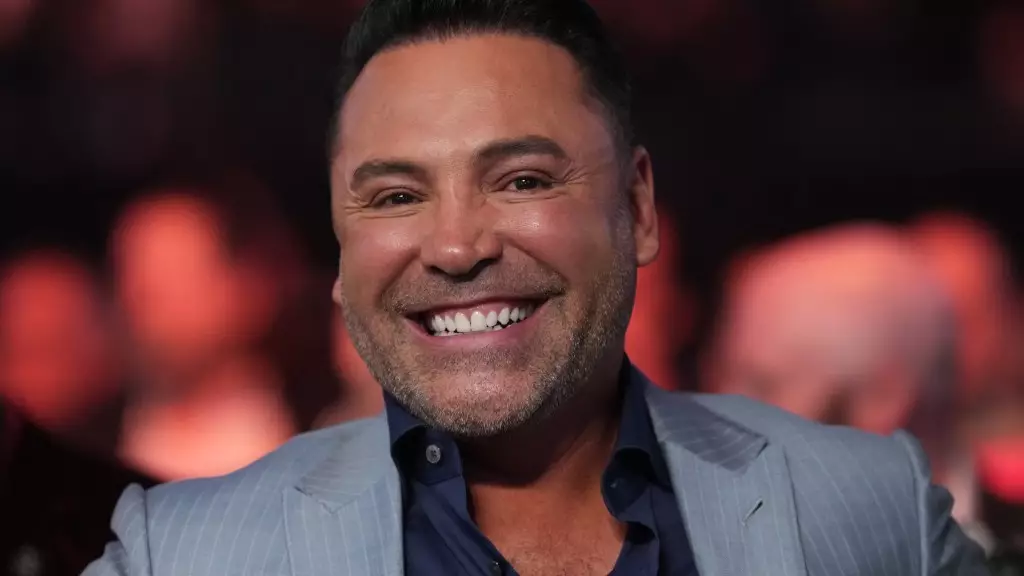Oscar De La Hoya, a figure synonymous with boxing, has long held a contentious relationship with UFC president Dana White. Their rivalry is well-documented, serving as a backdrop to various criticisms exchanged over the years. Yet, in a surprising twist of events, De La Hoya was spotted at UFC 306, or Noche UFC, in Las Vegas this past Saturday. Despite past grievances, he took the stage, seated in the luxurious box of Turki Alalshikh, a notable Saudi adviser linked to the “Riyadh Season” entertainment initiative. His presence at the event hinted at a significant shift in the narrative surrounding De La Hoya and mixed martial arts.
In a social media post leading up to the event, De La Hoya expressed enthusiasm for his experience at UFC 306. He lauded the impressive production value and overall execution of the event, adding a dimension of respect for the UFC’s organizational skills. “It was beautiful. It was spectacular. The production value was there,” he remarked, reflecting a genuine appreciation for the spectacle he witnessed. However, true to form, De La Hoya did not hold back in shading White, suggesting that the event’s concept wasn’t his doing. This ambivalence showcases a layered perspective: while he recognizes the merits of the UFC’s presentation, his rivalry with White remains palpable.
De La Hoya’s comments highlight not just a personal vendetta but also a broader narrative in combat sports. Rivalries between promoters and fighters often knead complexities of ego, business strategy, and national pride into the fabric of the sport. Despite their past disputes, De La Hoya’s acknowledgment of an event celebrating Mexican culture—an unequivocal nod to his heritage—illustrates an engaging dichotomy in combat sports. It reflects an inclination among high-profile figures to embrace what is beneficial for the community and culture, transcending personal grudges.
What adds depth to this narrative is De La Hoya’s inclusion in the UFC’s tribute package honoring Mexican contributions to combat sports during UFC 306. This recognition serves as a reminder that, despite their altercations, both De La Hoya and White understand the importance of respect within the sphere of combat sports. “He’s an asshole, but you can’t deny what he did,” White remarked post-event, encapsulating the paradox of mutual respect amid personal rivalry.
As the dust settles on UFC 306, questions loom regarding the future dynamics of De La Hoya’s relationship with the UFC and its leadership. Will this event serve as a bridge for future collaborations, or will their antagonistic dialogue continue to define their exchanges? Regardless of what happens next, De La Hoya’s attendance at UFC 306 is a pivotal moment, one that could potentially alter perceptions in the complex world of combat sports. In a sport driven by competition and spectacle, moments of unexpected unity and respect can emerge from the most improbable circumstances.

